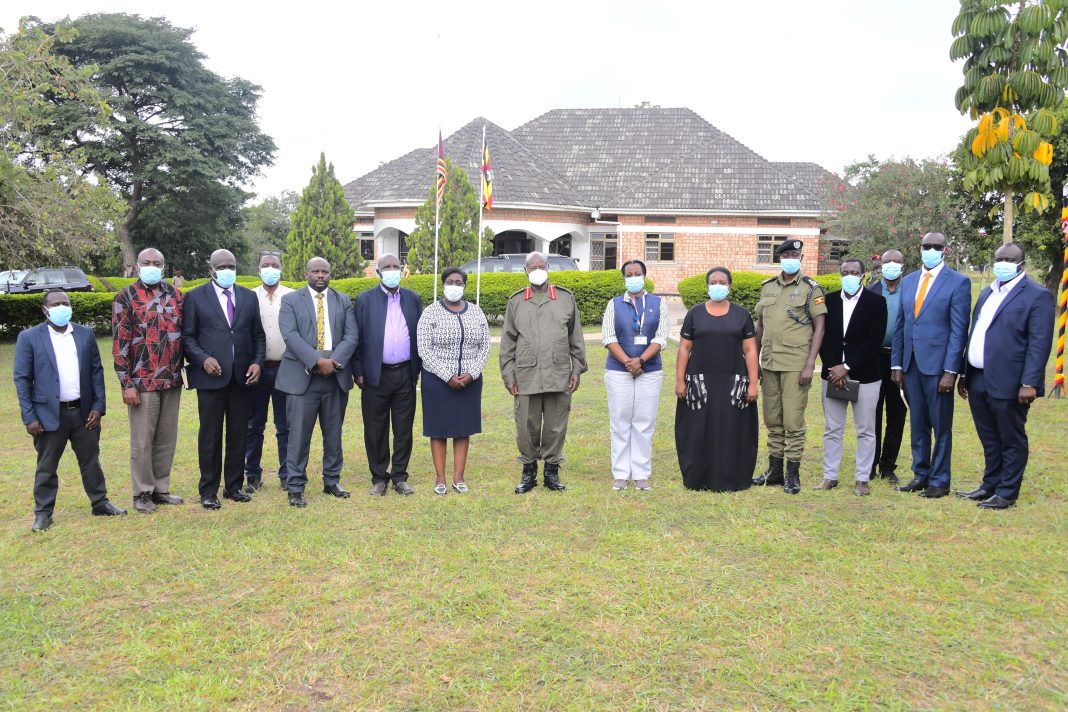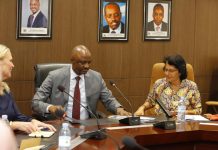President Yoweri Kaguta Museveni has expressed concern over the impact of irresponsible media coverage on Uganda’s development and reputation.
The President made the remarks while meeting a group of government communicators at the National Leadership Institute (NALI) in Kyankwanzi on July 11, 2024.
The group was led by Mr. Odrek Rwabwogo, the Chairperson of the Presidential Advisory Committee on Exports and Industrial Development (PACEID).
The President condemned some media houses for distorting facts and creating harmful narratives, highlighting an incident in 1989 to illustrate his point. At that time, he was working to commercialisemilk production in the cattle corridor. He noted that the move aimed to integrate traditional pastoralists into the money economy by promoting milk production.
“From 1989, we started acquiring Friesian cows and quickly produced a lot of milk. However, because the volumes were large, prices dropped. We needed to broaden milk products beyond liquid milk, so I sought investors to produce powdered milk, cheese, butter, and other products,” President Museveni said.
He recalled leasing the government-owned Uganda Dairy Corporation factory to an investor from Thailand to boost milk processing. However, a journalist’s misleading headline—”Uganda Sells Uganda Dairy Corporation for $1”—caused public outcry and discouraged the investor from proceeding.
“This man stopped investing after seeing the negative stories. It took me another four years to secure another investor from India,” he recounted.
President Museveni also stressed that such irresponsible journalism can have long-term detrimental effects on the economy.
“This irresponsibility is very dangerous. I fully support forming a committee to address this issue,” he stated.
Mr. Rwabwogo, speaking about media-related challenges, said that over the past 18 months, efforts had been made to improve Uganda’s international image through various media engagements.
Despite these efforts, local media often undermine the positive image being built.
“Only 12% of the citizens are positive about the government and 78% of online messages are negative perceptions about Uganda, this is bad. For example, there was a headline in the last few months saying, “Uganda Supplies Condoms Instead of Sanitary Pads”. This totally harms our image,” Mr. Rwabwogo explained.
He called for the implementation of directives to centralise government communications, ensuring that actions in one sector do not negatively affect the overall market and reputation.
He proposed robust daily research, immediate responses to negative news, and sensitising public sector officials on the damage caused by irresponsible reporting.
“We need to coach cabinet members in international communication practices and extend this training to local governments. We are not against reporting issues, but it’s crucial how and where they are reported. Publishing everything inside our ‘kitchen’ can be dangerous,” Mr. Rwabwogo noted.
The meeting concluded with an agreement to have monthly discussions in the cabinet about Uganda’s global perception and strategies to improve it.
“We are looking for a unified communication strategy to protect and promote our country. Investors get tired and move away if we don’t act quickly,” Mr. Rwabwogo added.
President Museveni and the meeting participants emphasised the need for order and discipline in media reporting to safeguard Uganda’s economic progress and democratic values.
The meeting was also attended by Col. Edith Nakalema, the head of the State House Investors Protection Unit; Ms. Marcella Karekye, the Special Presidential Assistant in charge of Communications and Director of the Government Citizen Interaction Centre (GCIC); Assistant Commissioner of Police Kituuma Rusoke, the Public Relations Officer of the Uganda Police Force; Mr. Ofwono Opondo, the Executive Director of Uganda Media Centre; Mr. Sandor Walusimbi, the Senior Press Secretary to H.E the President; Mr. Amos Wekesa, the proprietor of Great Lakes Safaris (Tourism); Mr. Emmanuel Ainebyoona, a senior Public Relations Officer at the Ministry of Health, among others.























